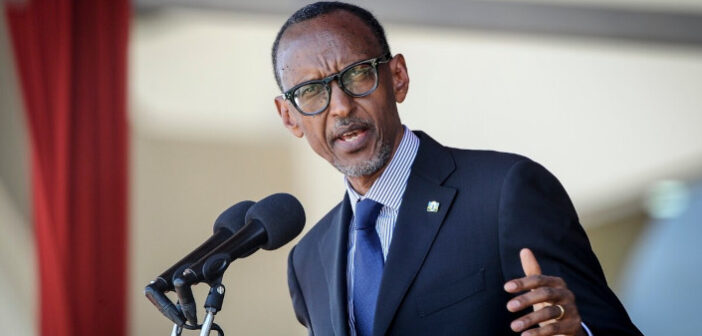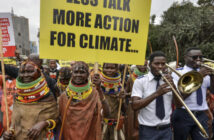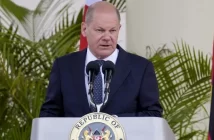Less Talk, More Action Is Needed to Strengthen Relations Between Caribbean Countries and Africa, Says Rwandan President Paul Kagame.
According to the president of Rwanda, it is past due for the countries of the Caribbean and the African continent to organize and carry out more robust, coordinated measures to address the common problems that both regions face.
President Paul Kagame stated during his first trip to Trinidad and Tobago that the African Union and CARICOM, also known as the Caribbean Community, should “come together in real terms” and go “beyond declarations of intent” to work on advancing their shared interests.
Kagame emphasised how historically connected the two areas are, as well as how their shared geopolitical challenges should spur stronger integrative action.
“In our diversity, we share common traits. Our people are resilient, creative and, as our common history shows, also indestructible. This mutual recognition should have practical, tangible effects. We belong to a number of important multilateral bodies, including the Commonwealth and the Organization of African, Caribbean and Pacific States,” Kagame told legislators at the 45th Annual Caribbean Community Conference.
His statements on July 5 also included a strong emphasis on improving global health and climate change measures as well as starting more inclusive borrowing activities to prevent asking for aid from more powerful, wealthy countries.
“Countries like ours can’t print money when we face a crisis. We have to borrow. Yet some of us are no longer eligible for concessional interest rates. Tools like the United Nations Multidimensional Vulnerability Index, and the Commonwealth’s Universal Vulnerability Index, reveal the special needs of small island developing states,” Kagame explained.
“In Africa, we have countries such as Seychelles, which I have just had the opportunity to visit, with similar climate financing difficulties as you face in the Caribbean. We can work together to advocate for a more responsive and inclusive international financial architecture.”
He also praised a plan for improved connectivity in “transport and telecommunications,” as well as for people-to-people contacts between the two regions, particularly for young workers and entrepreneurs.
Local vaccine production in Guyana, Barbados, and Rwanda, as well as the Bridgetown Initiative, which restructures existing institutions to finance debt, climate, and inflation resilience, are examples of initiatives already under way to support CARICOM and the African Union. Kagame pointed out that some of these projects still need further processes to make them long-term sustainable.
“The starting point here is how we govern our own individual countries, striving to be the best we can be, with a culture of accountability,” Kagame stated. “Let’s come together, as Africa and the Caribbean, and do the best we can for ourselves and our people. If we are determined to join forces, there is no one who can impede that. More importantly, it will benefit all of us.
Twenty nations make up CARICOM, which was established in 1973 and stretches from South America to The Bahamas. All 55 countries that make up the African continent are members of the African Union, formally known as the Organisation of African Unity. In 1973, it was created.




